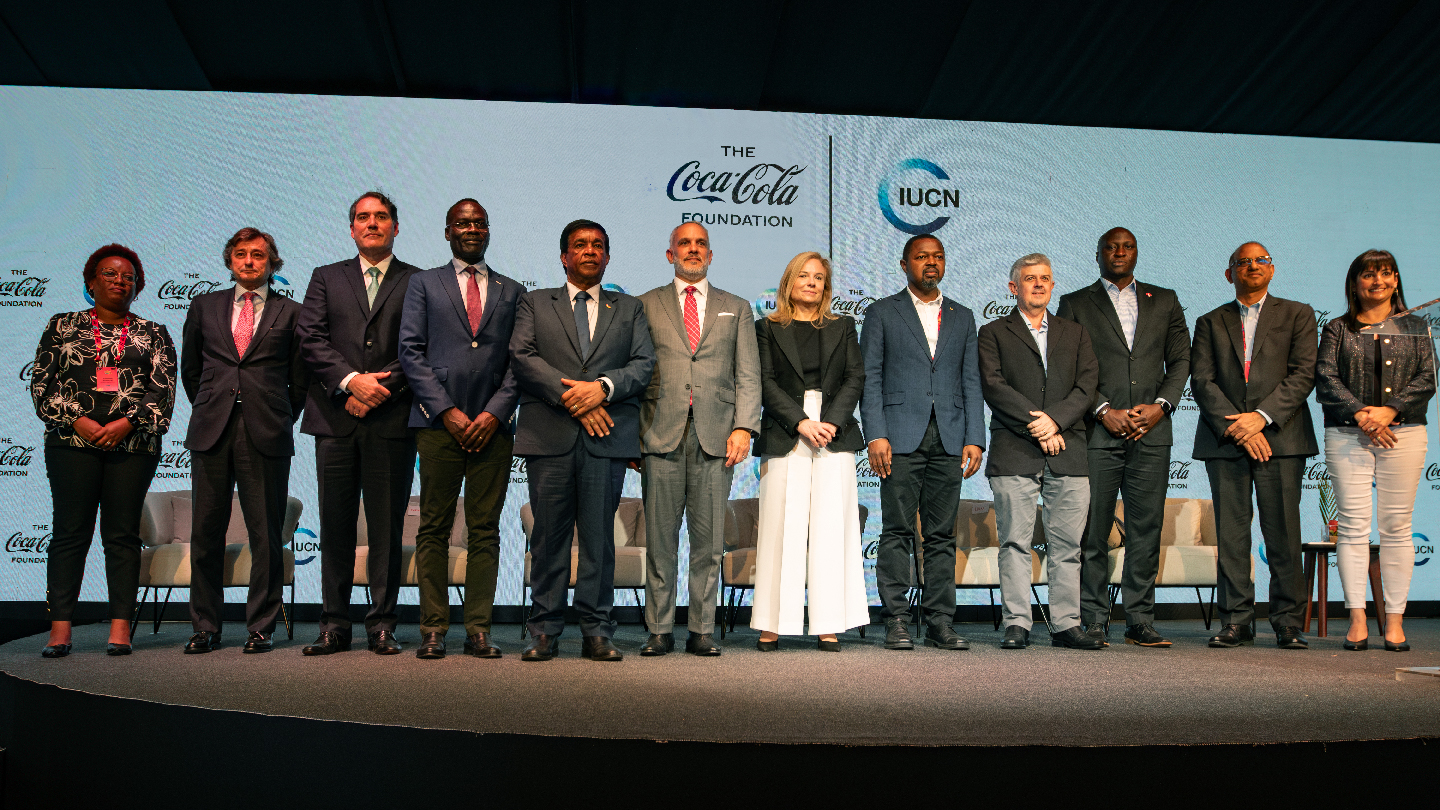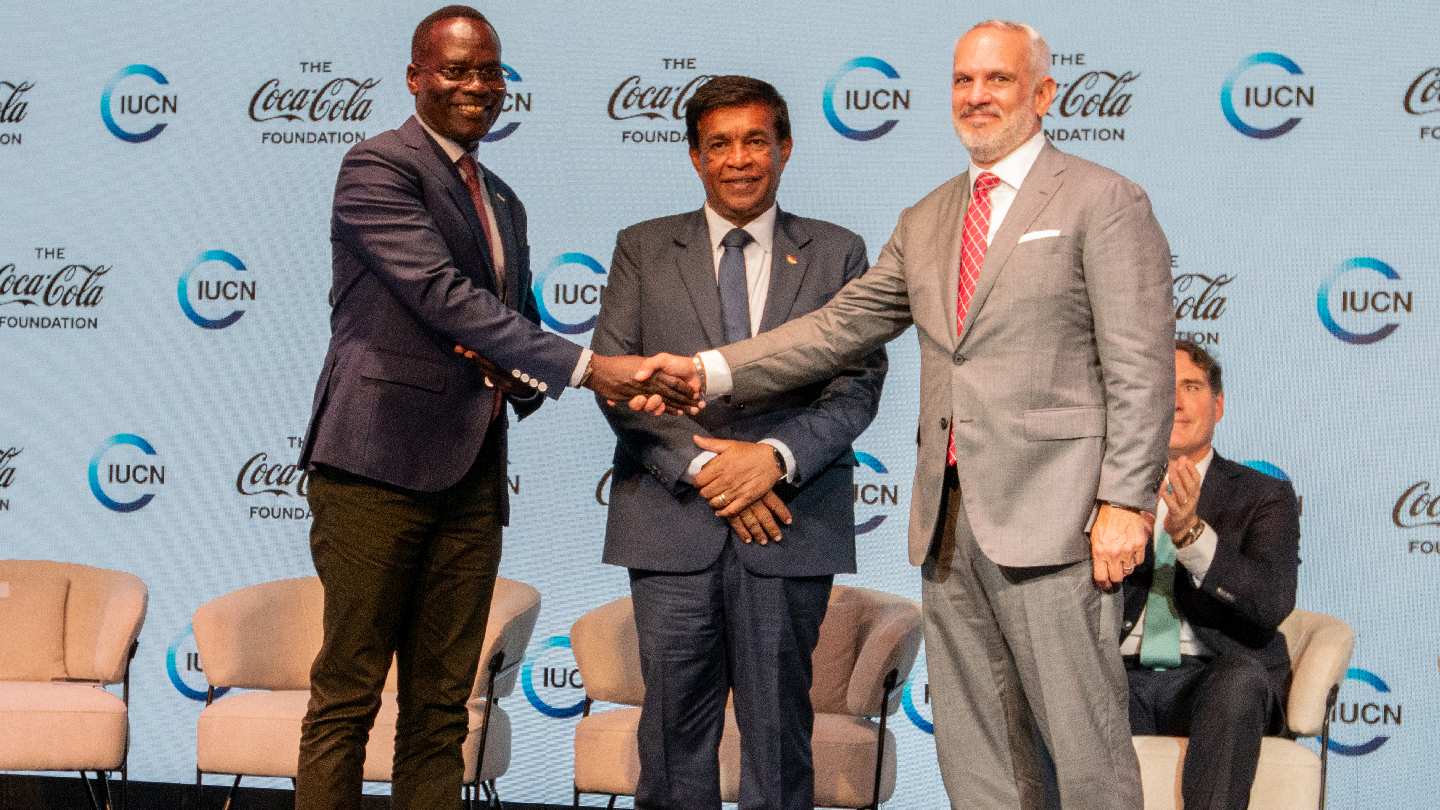
The Coca‑Cola Foundation donates $10 Million to Help Reduce Plastic Packaging Waste in 7 African Islands through IslandPlas Project
Le Morne, Mauritius, 11th June 2024: The Coca‑Cola Foundation has announced a US$10 million grant to the International Union for Conservation of Nature (IUCN). This grant aims to support IUCN's efforts in implementing circular solutions in seven islands to mitigate plastic waste leakage and foster the islands' transition towards waste-free environments through the IslandPlas project.
This three-year project targets seven African Islands; Mauritius, Cabo Verde, Comoros, Madagascar, São Tomé and Príncipe, Seychelles, and Zanzibar. It aims to enhance the livelihoods of approximately 9,600 individuals in the informal waste sector, reduce plastic waste through the collection of approximately 14,000 tons and recycling of approximately 5,600 tons, and spur economic growth by leveraging US$2 million in capital investments towards innovation and enterprise development in the sector.
“We believe in solutions that accelerate the transition toward a circular economy and stem the flow of waste leakage into rivers and oceans,” stated Carlos Pagoaga, President of The Coca‑Cola Foundation. “Our support will empower local waste actors and encourage innovations to help the collection and recycling of packaging waste,” he added.

With an ambition to drastically reduce plastic leakage into oceans, the IslandPlas project aligns with the Ministerial Declaration adopted by the Ministerial Conference on the Blue and Circular Economy in the Island States of Africa and the Indian Ocean in September 2023.
Leveraging on IUCN’s global network and expertise, the IslandPlas project focuses on innovation. It taps into the human capital of the seven islands – converting their local knowledge and lived experiences into sector-specific and locally-appropriate innovations to help solve the plastic packaging waste challenges on these seven islands.
“One lever to achieving a circular economy is the urgent improvement in waste management and recycling systems around the world. This means empowering local waste actors and innovating locally,” remarked Luisa Ortega, President of Coca‑Cola's Africa Operating Unit. “This project is expected to positively impact these critical actors as we work towards achieving Islands without waste on the continent,” she concluded.
Luther Bois Anukur, IUCN’s Regional Director for Eastern and Southern Africa noted, “IslandPlas is a groundbreaking initiative that takes a comprehensive, community-centric approach to tackling the plastic pollution crisis on Islands. By focusing on collection, recycling, empowering waste workers, and promoting alternative business models, we are offering a replicable model for collaborative action that will protect our oceans and empower local Island communities."
Highlighting Coca‑Cola’s longstanding relationship with Mauritius, the official announcement ceremony of the IslandPlas project took place during Coca‑Cola Africa’s annual system conference. This event brings together bottling partners and associates of The Coca‑Cola Company on the continent for in-person engagements.
About The Coca‑Cola Foundation
The Coca‑Cola Foundation’s mission is to make a difference in communities around the world where The Coca‑Cola Company operates and where our employees live and work. We support transformative ideas and institutions that address complex global challenges and that leave a measurable and lasting impact. Our giving is focused on sustainable access to safe water, climate resilience and disaster risk preparedness and response, circular economy, economic empowerment, and causes impacting our hometown community. Since its inception in 1984, The Coca‑Cola Foundation has awarded grants of over $1.5 billion in service of its mandate to strengthen communities across the world.
About International Union for Conservation of Nature (IUCN)
IUCN (International Union for Conservation of Nature) is a membership Union of government and civil society organisations. Together, we work to advance sustainable development and create a just world that values and conserves nature. Created in 1948, IUCN is now the world’s largest and most diverse environmental network, harnessing the knowledge, resources and reach of our more than 1,400 Member organisations and 16,000 experts. This diversity and expertise make IUCN the global authority on the status of the natural world and the measures needed to safeguard it.
On December 2, 2024, The Coca‑Cola Company announced updated voluntary environmental goals. Read more here: The Coca‑Cola Company Evolves Voluntary Environmental Goals